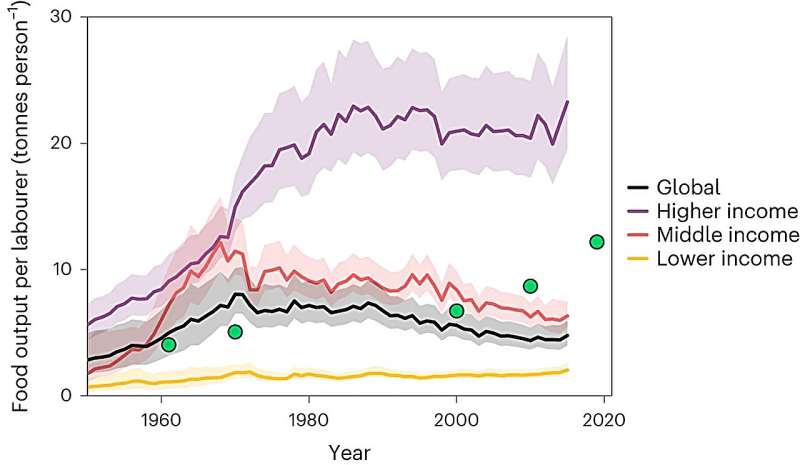This article has been reviewed according to Science X's editorial process and policies. Editors have highlighted the following attributes while ensuring the content's credibility:
fact-checked
peer-reviewed publication
trusted source
proofread
Surprising trend in global fishing industries: Study finds decline in catch per fisher since the 1990s

A new study, titled "Diminishing Returns in Labour in the Global Marine Food System" and recently published in Nature Sustainability, uncovers significant challenges concerning labor in marine food production systems. Led by researchers from the University of Bergen and an international team, the study offers insights into global changes in the number of fishers from 1950 to 2015.
Postdoctoral researcher in theoretical ecology Kim J. N. Scherrer, from the University of Bergen, acted as the corresponding author, highlighting the university's commitment to interdisciplinary collaboration.
The study reveals an unexpected trend; despite great technological advancements, the global number of fishers has continued to rise. This increase is especially prominent in low- and middle-income countries, whereas high-income nations have experienced a marked decline. Unfortunately, this trend has resulted in a decrease in catch per fisher since the 1990s. In contrast, the food production per farmer grew rapidly.
"Our findings are striking. Despite advanced technology, we've witnessed a decline in catch per fisher since the 1990s. This underscores the challenges of sustaining global fishing industries," says postdoctoral researcher in theoretical ecology Kim J. N. Scherrer at the University of Bergen.
The study offers a crucial perspective on challenges and trends affecting global marine food production systems. The decline in productivity per labor unit in the fishing sector, specifically fish per fisher, could have extensive consequences for food production efficiency, marine ecosystems, and fishing communities.
The study's insights are valuable for policymakers and stakeholders in fisheries and environmental management, highlighting the necessity for a balanced approach to resource management and technological advancement in this sector.
More information: Kim J. N. Scherrer et al, Diminishing returns on labour in the global marine food system, Nature Sustainability (2023). DOI: 10.1038/s41893-023-01249-8
Journal information: Nature Sustainability
Provided by University of Bergen



















